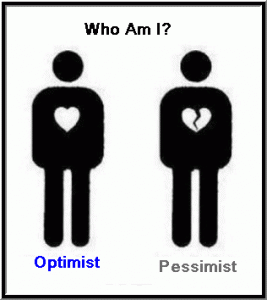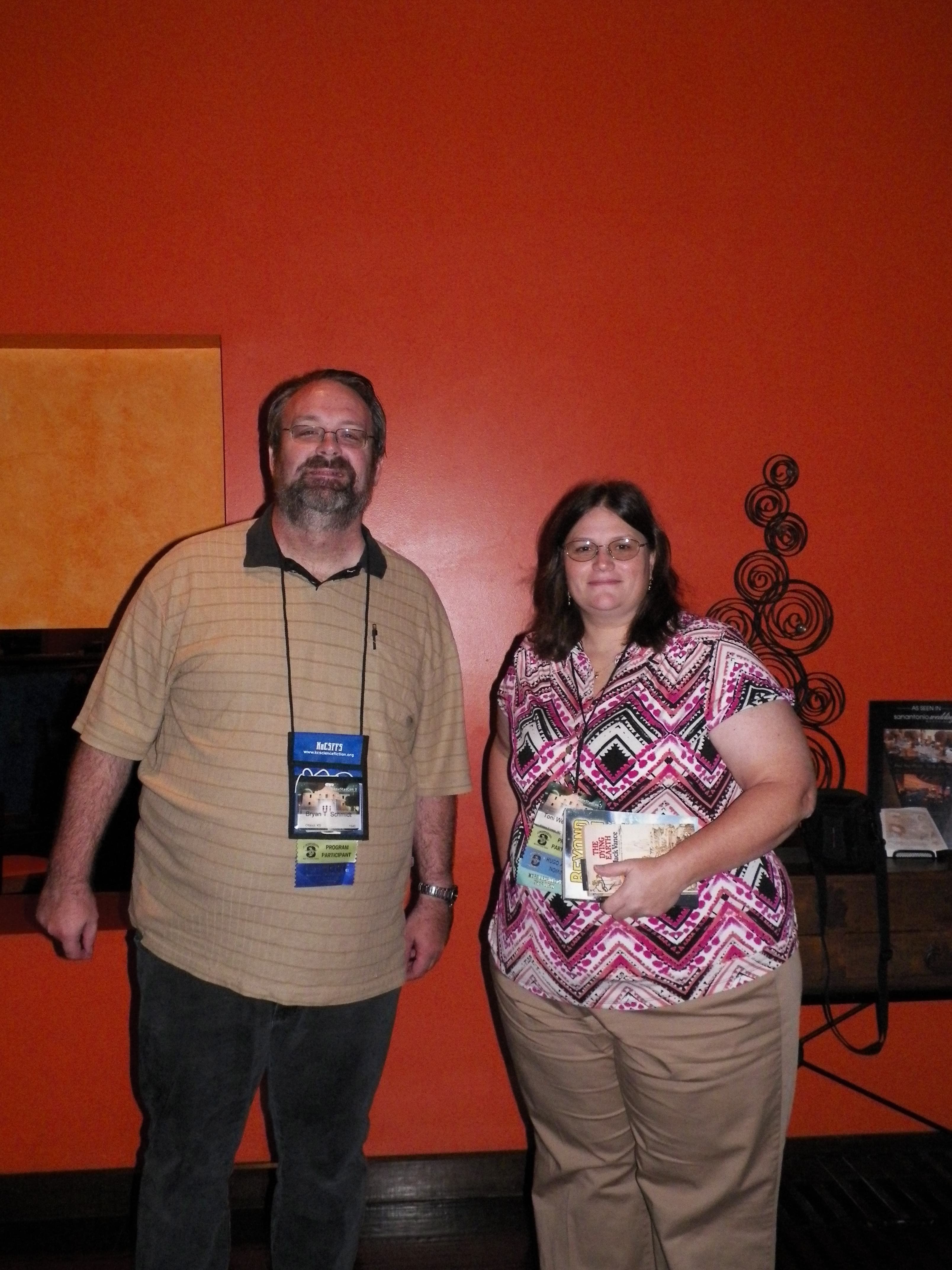
Well, I’ve been away from blogging for a month due to various reasons, with apologies to those who follow the blog. And so I’m going to try and get back into the swing of it with this report on my recent trip to San Antonio for World Con. As those who’ve seen my pictures on Facebook can already tell, I had the trip of a lifetime.
This year’s World Con brought my first solo sit down meal with a Big Five editor. My first sit down meal with a Grand Master and writing hero. And my first chance to sit in the front rows at the Hugo Awards. Amongst other things. I met so many people, built on preexisting relationships, laid foundations for new relationships, and explored new possibilities in so many ways.
For me, World Con is the most important business meeting of my year by far. So many publishers, authors, editors, booksellers and others come together in one place that it just creates tremendous opportunities. So I plan my trip accordingly. I arrange meals in advance, focusing mostly on people I want to do projects with, friends or not. I try to get on panels and a reading and signing. But then I leave the rest of time free to just mingle and network.
Although this year’s trip started rough with a lost cell phone (a bit of a handicap when trying to meet up with people at a con spread over 3 buildings with 3500 attendees), I quickly shoved it aside and launched into my second day by having lunch with Toni Weisskopf, who was delightful. I remembered chatting with her in 2010 at ConQuest in Kansas City, when she was Editor GOH, but this time we met as publisher and author, as I am coediting an anthology for Baen. We mostly talked about life, ourselves, and anything but business but she did inquire how the anthology is coming and wound up inviting me to pitch another, so I offered two ideas. I’ll be more formally presenting them soon. One is an immediate follow up to Shattered Shields, the military fantasy anthology I am editing with Jenn Brozek for Baen right now. (We just closed our Table of Contents and are doing final edits now). The other is a collaboration with the delightful Cat Rambo.
I also got to finally meet Lezli Robyn for lunch. She’s been my online friend for ages and we had missed each other completely in Chicago, so we made a point of getting together this year. She’s delightful. We sat on a Mexican restaurant’s outdoor patio overlooking the River Walk and were soon joined by Kay Kenyon. Two lovely ladies. Such fun.
In between I had done my first panel, a science panel titled “My Favorite Dinosaur” and had fun with Elizabeth Bear and the other panelists, including artist-author Spring Schoenhuth, a paleontologist, and a scientist from Japan. Later that night, I did a panel with the flawed question: “Do SF Stories have Fewer Happy Endings Now?” which the panelists and I basically deconstructed for an hour. When you name panels, narrow questions work best. Broad ones so dependent on people’s perspectives, tastes, etc., generally don’t work as well, at least for writing panels.
My moderating seemed to go over well, so I was excited for my last panel with Gail Carriger, Robin Hobb and Amanda Downum the next day on “Intricate Worlds.” But first, I spent the evening at parties and BarCon, then did a little crit work for my Writer’s Workshop session that Sunday.
Saturday I slept in then worked on panel prep and workshop stuff before meeting Dave Farland to get Raygun Chronicles bookplates signed. We had chatted the night before for ninety minutes at the Writers and Artists of the Future panel and wound up hanging and chatting again for a while, with David Brin even stopping in at one point. Dave is a really nice guy who is in two anthologies for me this year, and I am very glad, after hearing about him for years, to finally get to meet and work with him.
Mid-day, JM McDermott took Maurice Broaddus, Django Wexler and I off site for a signing and panel on faith in fiction. We had a small crowd but a great discussion, then Django and I hit the food court for a quick meal before I headed to the worldbuilding panel. The ladies and I had decided in advance to not do the stereotypical worldbuilding panel, so I launched us off with worldbuilding pet peeves and we went for there. In all, I was told, it was a favorite and very helpful panel for many. We covered the under valued areas of worldbuilding, favorite examples and more. And the hour simply flew by. Fun people, and, of course, sitting between Carriger and Hobb, I was fanboying the whole time.
After that I just took a nap and worked on my crits so I could print them, then hit a couple parties. The Baen party was a priority, and due to all the rushing around and walking, wound up being my sole stop for the night, though I did grab dinner for a “date” with my pals Jay Werkheiser and Lisa Montoya, whom I met last year and joke around with now constantly on Facebook. Jay is in Analog a lot as a writer and has generously beta read for me a couple times. Just delightful folks.
Sunday I had my Bucket List breakfast with Robert Silverberg and my roommate, Alex Shvartsman–fellow editor and author, tagged along. Silverberg was a blast, as usual, being funny and a great conversationalist, and soon his wife Karen Haber joined as well, and she is a similar delight. Alex and I both got the All-You-Can-Eat buffet but ate only one plate because we didn’t want to go back and miss any of the conversation.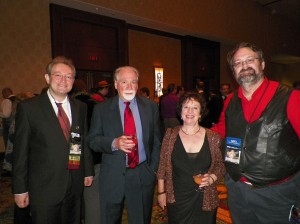
Then it was off to print my crits and lead my two hour Writer’s Workshop session. I think at least two of the writers were quite receptive. The third was polite but didn’t seem to agree with an assessment all four of the rest of us made of his work. But I hope all of them found benefit in it nonetheless. Time will tell, as always.
At one, I met Patrick Swenson, publisher of Beyond The Sun, John A. Pitts and Brenda Cooper and we had lunch and discussed our mutual book launch at OryCon. These are three of my favorite people in SFF. Normally, I see them once a year at World Con. Excited that I’ll see them again, and that working on books has had me in touch with them a lot more this year than normal as Patrick published Beyond The Sun and Brenda and John each wrote stories for others.
The last bit of official duties was to record SFSignal podcast with Patrick Hester, Patrick Swenson and Beyond The Sun contributors, including authors Jean Johnson, Cat Rambo, Jamie Todd Rubin, Alex Shvartsman, Maurice Broaddus and artist Mitch Bentley. It flew by but was fun and I hope brings more attention to our collaboration, a project we’re all very proud of. Good reviews keep coming in and Gardner Dozois is reviewing it for Locus next month. Mitch also gifted me an original canvass of his cover art, which was a nice surprise I’ll treasure. I’ve worked with Mitch on four books now and his cover for Beyond The Sun is getting him accolades from Toni Weisskopf, Jack McDevitt, Robert Silverberg and more. Since I do anthologies to help myself and others build our careers, it’s nice to see it paying off for friends like that.
The night was taken up with Hugo Awards, where Alex accepted for Ken Liu and we spent the night carrying around a Hugo.
It was delightful to be together with the community and see recent conflicts and kerfluffles not interfere. That was probably the best surprise of all. Even Silverberg had confessed his fear that there would be a dark cloud over the proceedings but I was as warmly received by all as anyone, and clearly those who matter don’t pay much attention to rumors based on assumptions and innuendo, thankfully. We all had better things to do than discuss such overwrought unpleasantness. And I was relieved.
I am not naming everyone I met, but I did also meet several fans and Kickstarter backers, as well as other top people in the field. It was just an all around delight, and I wish I could afford to go to London. At this point, it appears World Con will be out for me, but we’ll see. It sure is a once a year time of greatness I’d hate to miss. The trip of a lifetime, as I said in the title to this post, and I look forward to many more to come.
Bryan Thomas Schmidt is an author and editor of adult and children’s speculative fiction. His debut novel, The Worker Prince (2011) received Honorable Mention on Barnes & Noble Book Club’s Year’s Best Science Fiction Releases for 2011. His short stories have appeared in magazines, anthologies and online. In addition to Shattered Shields, he edited the anthologies Space Battles: Full Throttle Space Tales #6 (2012), Beyond The Sun (2013) and Raygun Chronicles: Space Opera For a New Age (2013). He hosts #sffwrtcht (Science Fiction & Fantasy Writer’s Chat) Wednesdays at 9 pm ET on Twitter as @BryanThomasS.


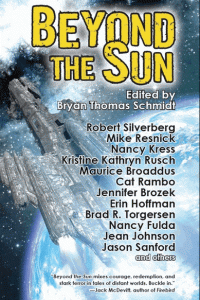
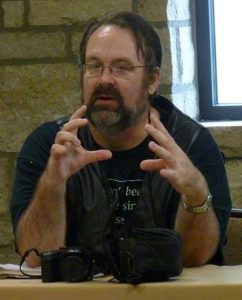
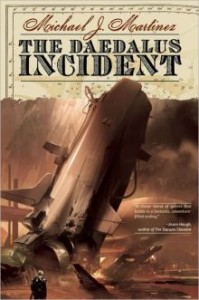
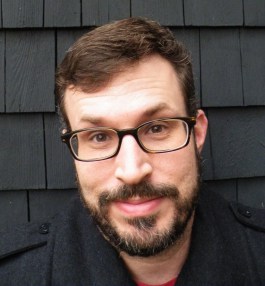
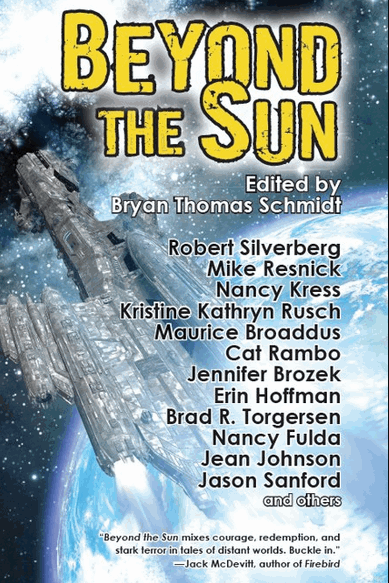

 View Images
View Images